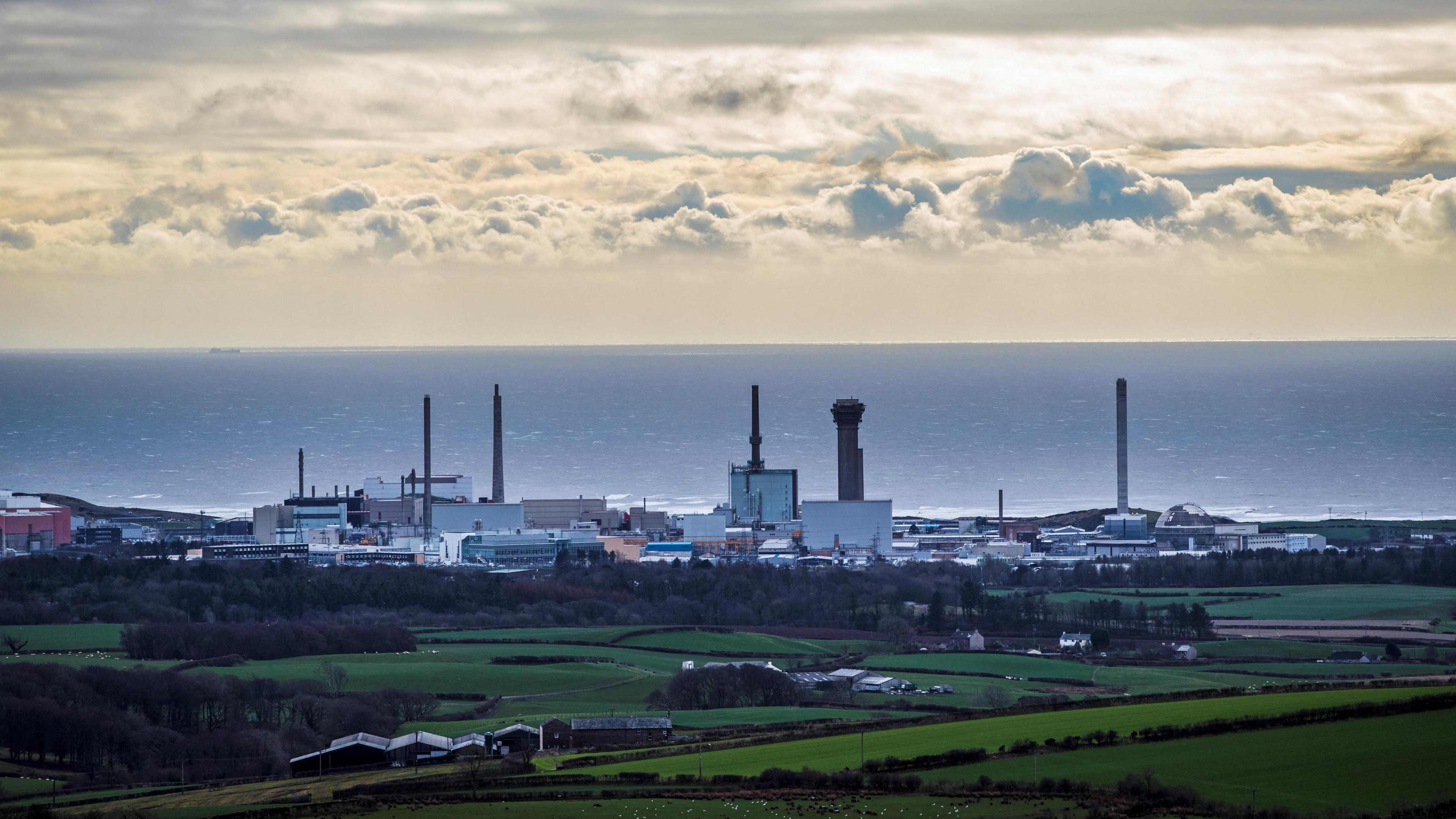Sellafield could leak until 2050s, MPs warn
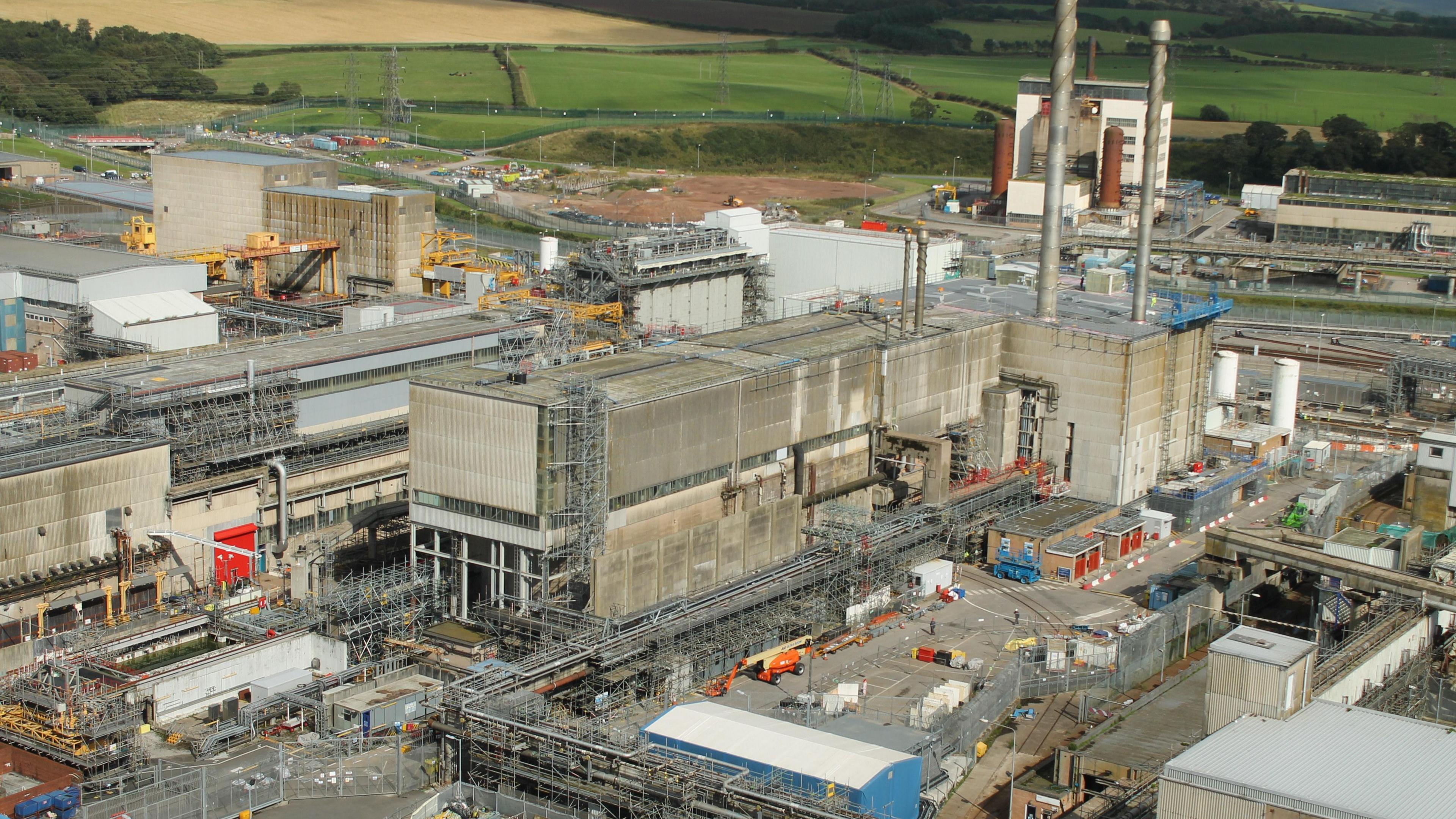
The NDA said the "leak in the Magnox Swarf Storage Silo is contained and does not pose a risk to the public"
- Published
The UK's largest nuclear site could continue leaking radioactive water until the 2050s, MPs have warned, while its clean-up operations struggle to progress quickly enough.
The Public Accounts Committee (PAC) criticised the speed of decommissioning work at Sellafield in Cumbria, citing "cost overruns and continuing safety concerns" in a report published on Wednesday, external.
Although the committee noted there were "signs of improvement", PAC chairman Sir Geoffrey Clifton-Brown said Sellafield continued to present "intolerable risks".
The Nuclear Decommissioning Authority (NDA) acknowledged the leak at its Magnox Swarf Storage Silo (MSSS) was its "single biggest environmental issue".
The MSSS, which the NDA described as "the most hazardous building in the UK", has been leaking radioactive water into the ground since 2018, releasing enough to fill an Olympic swimming pool every three years.
It is likely to continue leaking until the oldest section of the building has been emptied in the 2050s, about a decade later than previously expected.
Sir Geoffrey said: "As with the fight against climate change, the sheer scale of the hundred-year timeframe of the decommissioning project makes it hard to grasp the immediacy of safety hazards and cost overruns that delays can have.
"Every day at Sellafield is a race against time to complete works before buildings reach the end of their life.
"Our report contains too many signs that this is a race that Sellafield risks losing."
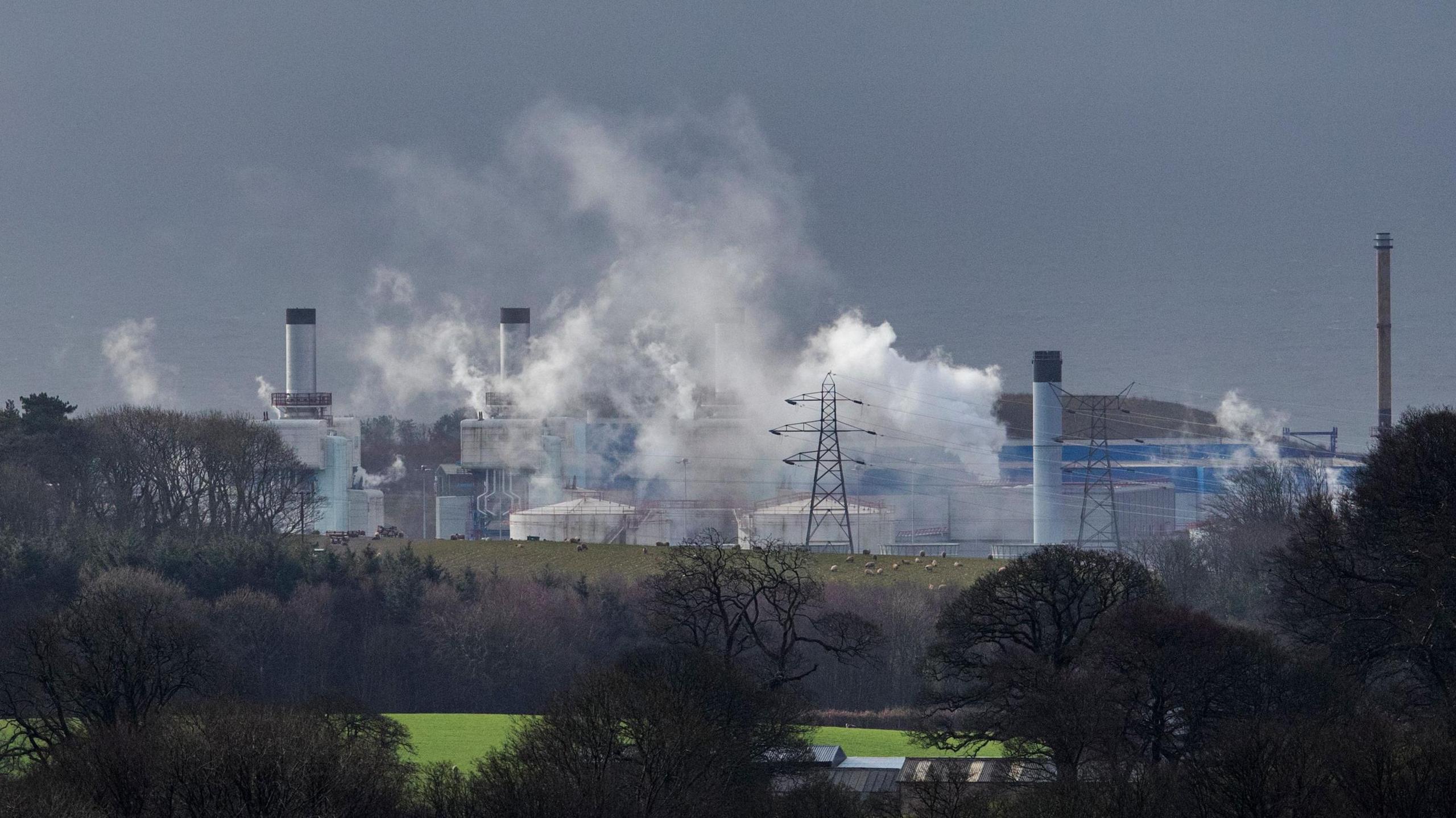
Sellafield ceased generating electricity in 2003
Pointing to the fact that Sellafield Ltd had missed most of its annual targets for retrieving waste from buildings, including the MSSS, the committee warned: "The consequence of this underperformance is that the buildings are likely to remain extremely hazardous for longer."
A spokeswoman for the NDA said the "leak in the Magnox Swarf Storage Silo is contained and does not pose a risk to the public".
"Regulators accept that the current plan to tackle the leak is the most effective one."
'False dawn'
Sir Geoffrey said it was of "vital importance that the government grasp the daily urgency of the work taking place at Sellafield and shed any sense of a far-off date of completion for which no-one currently living is responsible".
"Sellafield's risks and challenges are those of the present day.
"There are some early indications of some improvement in Sellafield's delivery, which our report notes.
"The government must do far more to hold all involved immediately accountable to ensure these do not represent a false dawn, and to better safeguard both the public purse and the public itself."
Sellafield ceased generating electricity in 2003 and, in addition to work cleaning up the site, now processes and stores nuclear waste from power plants around the UK.
The government plans to create an underground geological disposal facility (GDF) to store nuclear waste for the thousands of years it will take to become safe.
But the committee said delays in creating the GDF, which is now not expected to be complete until the late 2050s, meant more costs for Sellafield.
NDA chief executive David Peattie said it welcomed the report, adding it took the "findings seriously and the safety of the site and the wellbeing of our people will always be our highest priorities".
"We are pleased they recognise improvements in delivering major projects and that we are safely retrieving waste from all four highest hazard facilities."
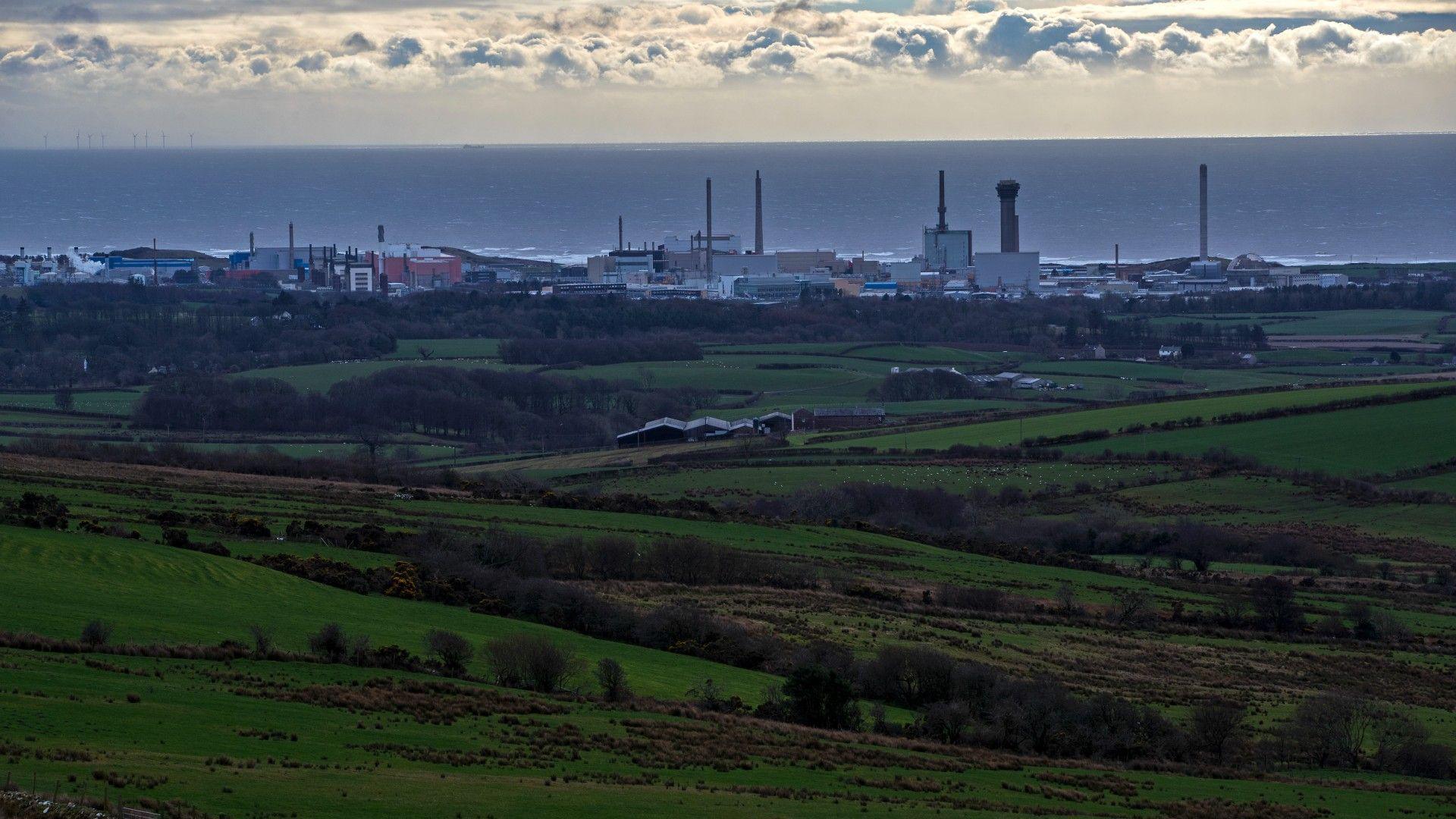
The PAC expressed concern that there was a "sub-optimal culture" at Sellafield
The PAC expressed concern there was a "sub-optimal culture" at Sellafield and called on the NDA to publish information about the prevalence and perception of bullying in its annual report.
The NDA spokeswoman said: "We're committed to an open and respectful culture and we've taken decisive action to enable this, including strengthening our whistleblowing policy."
The Department for Energy Security and Net Zero said it "expected the highest standards of safety and security as former nuclear sites are dismantled, and the regulator is clear that public safety is not compromised at Sellafield".
"This is underpinned by monthly performance reviews and increased responsibility for overseeing major project performance, enabling more direct scrutiny and intervention," a spokeswoman for the department said.
"We have zero tolerance of bullying, harassment and offensive behaviour in the workplace - we expect Sellafield and the NDA to operate on this basis, investigate allegations and take robust action when needed."
Follow BBC Cumbria on X, external, Facebook, external, Nextdoor and Instagram, external.
Get in touch
Do you have a story suggestion for BBC Cumbria?
- Published21 March
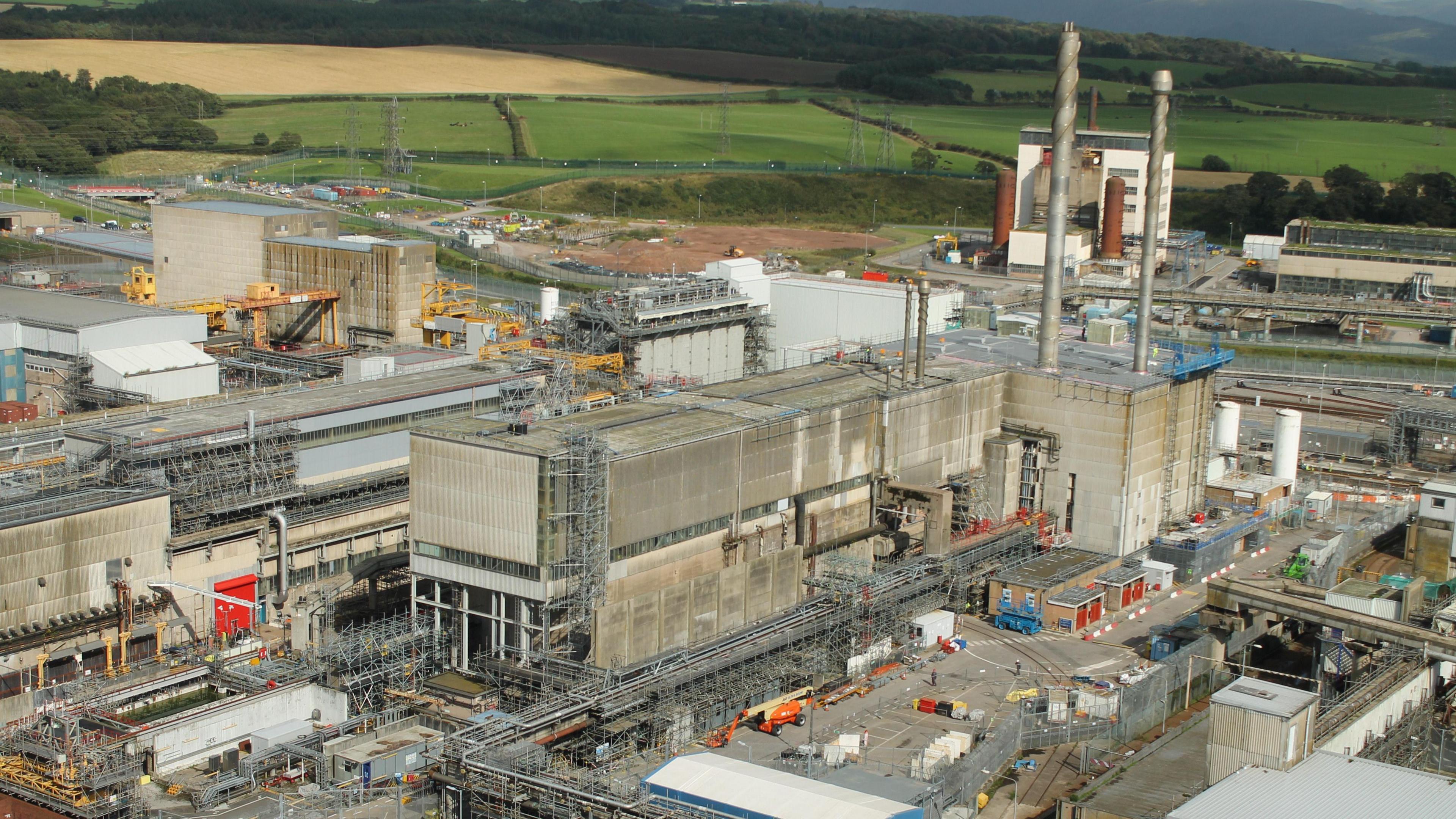
- Published28 October 2024
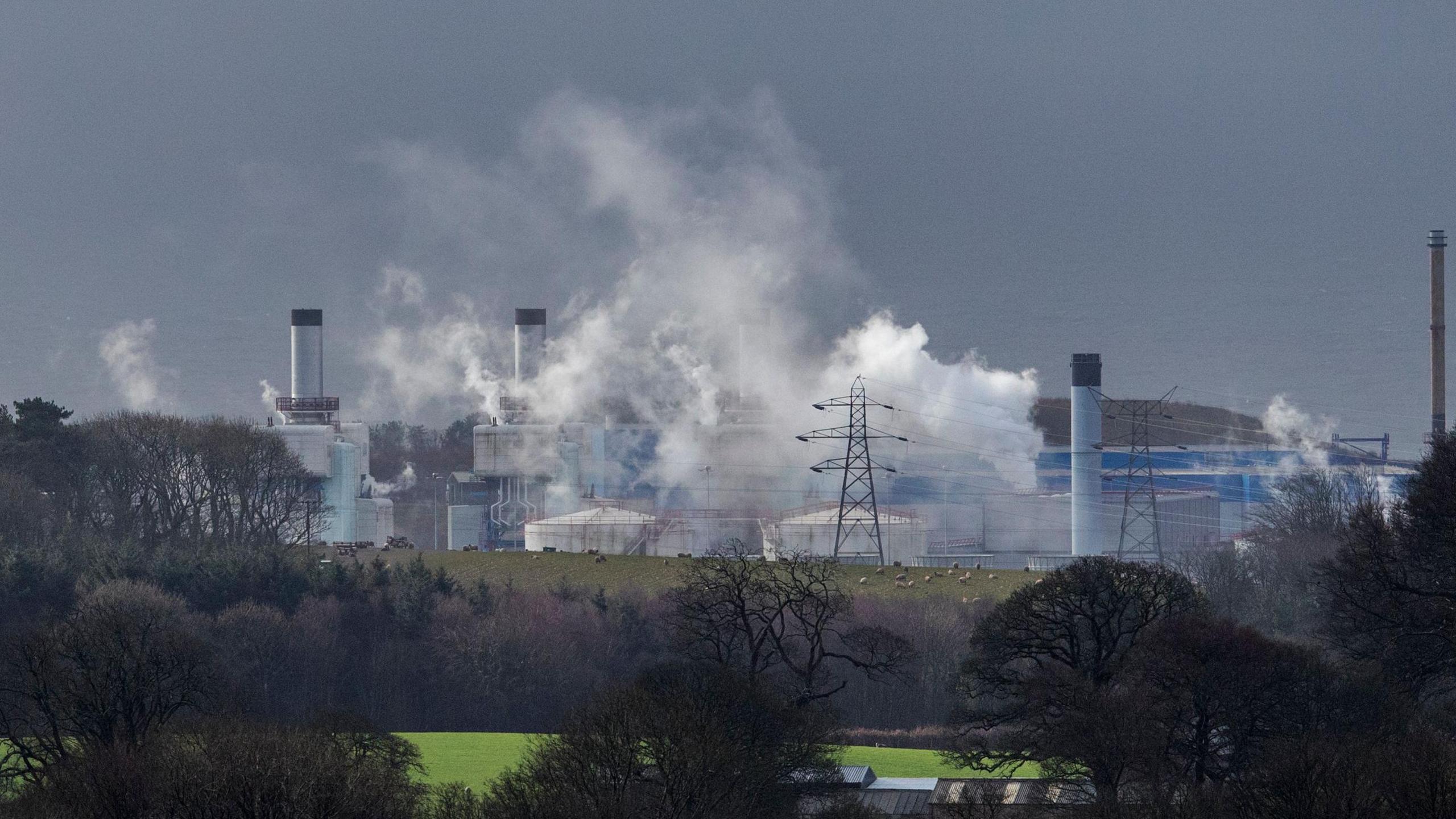
- Published23 October 2024
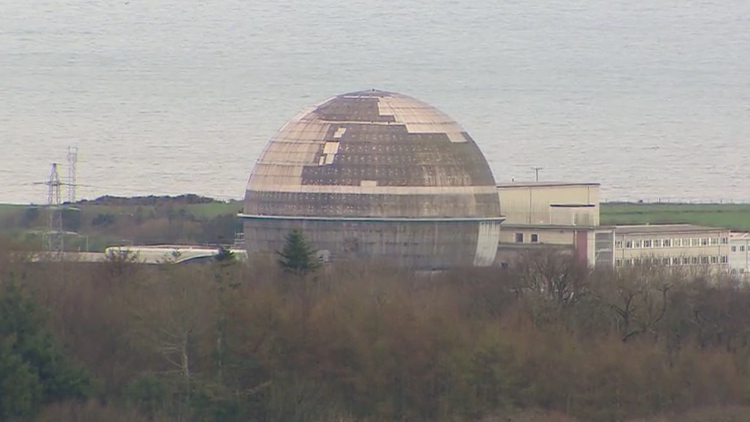
- Published1 May
